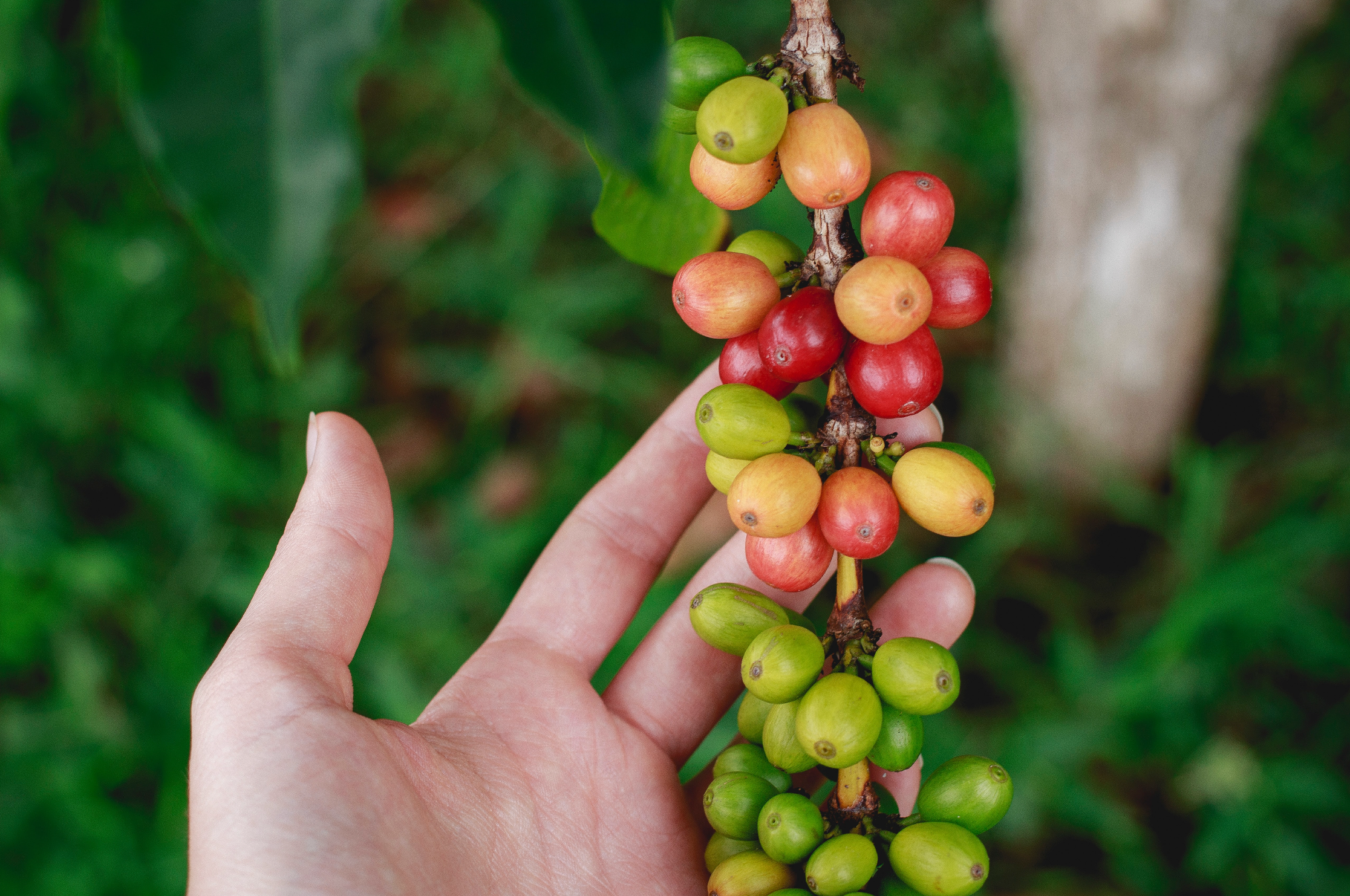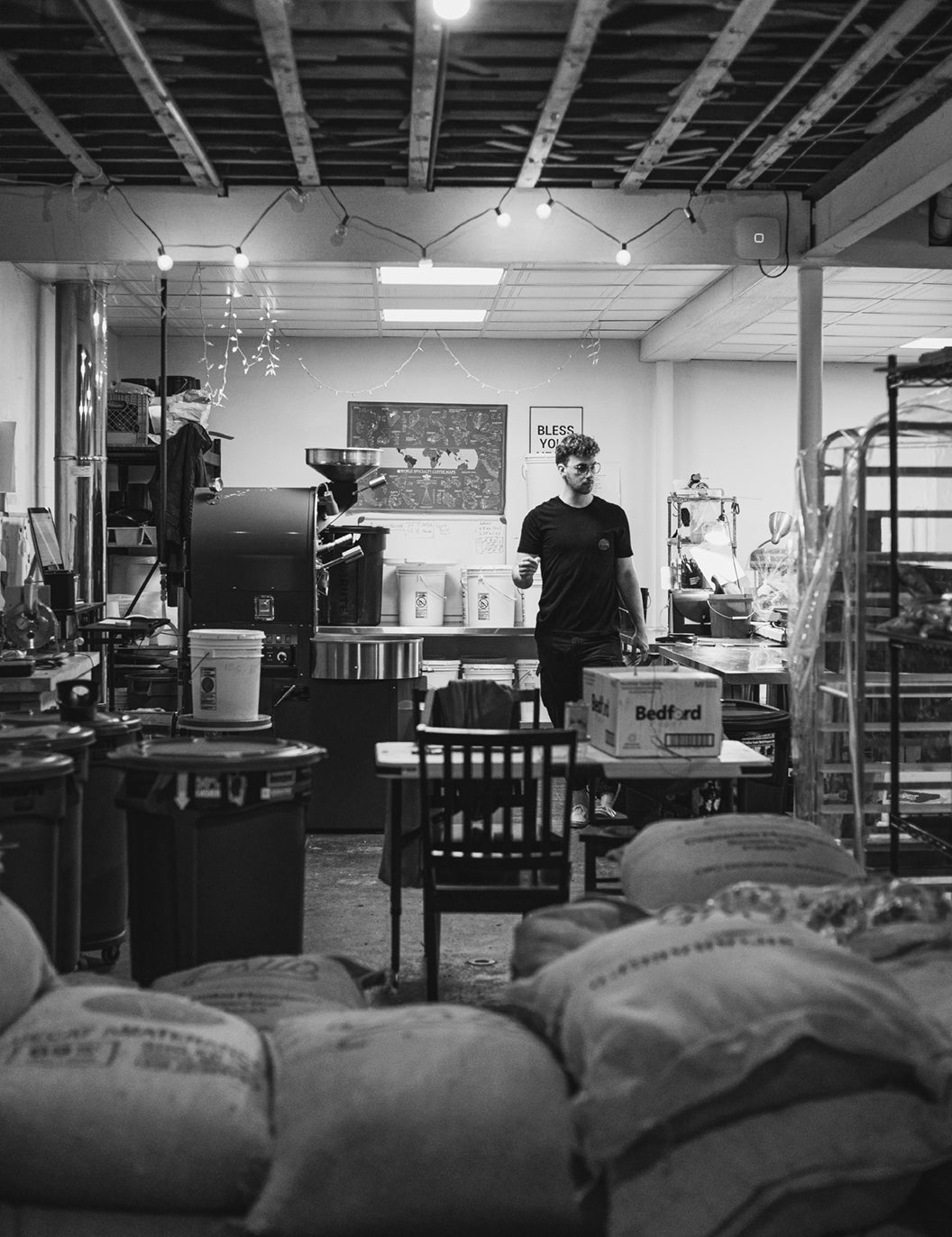Organic vs. Fair Trade vs. Direct Trade Coffee: What are the differences?

Introduction
When it comes to buying coffee, you may have come across terms like "organic," "fair trade," and "direct trade." These terms all have different meanings, and it's important to understand the differences between them so you can make an informed decision when buying coffee. In this article, we will explain the differences between organic, fair trade, and direct trade coffee and help you understand the impact these certifications can have on the environment, farmers, and your cup of coffee.
Organic Coffee
Organic coffee is grown without the use of synthetic pesticides and fertilizers. The beans must be grown on land that has been free from these chemicals for at least three years. The certification process for organic coffee is regulated by the USDA, and farmers must meet strict standards to be able to label their coffee as organic.
Organic coffee is a great choice for those who are concerned about the environment and the health of the farmers who grow the beans. It ensures that the beans were grown in a way that is better for the environment and for the farmers who grew them. Organic coffee is also often considered to have a better taste than non-organic coffee because the beans are grown in a way that allows them to develop their full flavor potential. While organic certification has some benefits, it also has some draw backs.
Challenges with Organic Certification
Organic certification can be a costly process for farmers. They may have to invest in new equipment and techniques to meet the standards set by certifying bodies, and may also have to pay fees to get their coffee certified as organic. This can make it difficult for small farmers to afford the certification process. Farmers may also have limited access to resources such as training and credit, which can make it harder for them to improve their farming practices and yields. There is also a lack of standardization: organic coffee certification varies by country and region, which can make it difficult for farmers to understand and comply with the standards set by certifying bodies.
Fair Trade Coffee
Fair trade coffee, on the other hand, is focused on ensuring that farmers are paid a fair price for their beans. This certification is regulated by Fairtrade International and ensures that farmers are paid a price that is above the fair trade minimum price, which is set by Fairtrade International. This helps ensure that farmers are able to make a living wage and that they are not exploited by buyers.
Fair trade coffee is a great choice for those who are concerned about the welfare of the farmers who grow the beans. It ensures that farmers are paid a fair price for their beans, which helps to improve their standard of living and ensures that they are not taken advantage of by buyers.
Challenges with Fair Trade Coffee
While fair trade certification can have many benefits, it can also negatively affect farmers in several ways:
-
Limited access to the fair trade market: Not all farmers are able to participate in the fair trade market, as they may not be able to meet the requirements to become certified. This can limit the earning potential of farmers who are not able to participate in the fair trade market.
-
Bureaucratic process: The certification process for fair trade coffee can be bureaucratic and time-consuming for farmers, particularly for those who are not familiar with the requirements. This can make it difficult for farmers to get their coffee certified as fair trade and sell it at a premium price.
-
Limited market for fair trade coffee: Fair trade coffee makes up a small percentage of the coffee market, so farmers may have a harder time finding buyers for their fair trade beans, which can limit their earning potential.
-
Limited access to resources: Fair trade farmers may have limited access to resources such as training and credit, which can make it harder for them to improve their farming practices and yields.
-
Price fluctuations: The fair trade minimum price is set by Fairtrade International, but it is not guaranteed, and it can fluctuate based on market conditions. This can make it difficult for farmers to plan for their future and make a living wage.
-
Limited ability to negotiate prices: The fair trade certification process sets a minimum price for coffee beans, but it doesn't guarantee that farmers will receive the best price possible for their beans. They are not able to negotiate prices with buyers like they would be able to in a direct trade relationship.

When comparing fair trade prices against the average special coffee industry pricing, fair trade is drastically less of what most specialty coffee roasters are paying for their green coffee. As an example, fair trade pricing as of 2021 was set at a minimum of $1.40 a pound. Most specialty coffee, coffee rated 80 in a cupping score, is typically above $3.00 a pound. This means that while fair trade certification helps ensures higher prices for farmers, it could also leave them under valuing their coffee.
Direct Trade Coffee
Direct trade coffee focuses on building direct relationships between farmers and buyers. This allows farmers to negotiate better prices for their beans and helps to ensure that they are paid a fair price. Direct trade coffee is not regulated by any specific organization, and the certification process can vary depending on the buyer and the farmer.
When direct trade is a relationship between a coffee roaster and a farmer, bypassing intermediaries, this relationship can help farmers in several ways:
-
Better prices: By working directly with a roaster, farmers can negotiate better prices for their beans, which can improve their livelihoods and help them make a living wage.
-
Access to resources: Direct trade relationships can provide farmers with access to resources such as training and credit, which can help them improve their farming practices and yields.
-
Long-term relationships: Direct trade relationships can be long-term, and provide farmers with a stable market for their beans. This can help farmers plan for their future and make better business decisions.
-
Transparency: Direct trade relationships can provide more transparency in the coffee supply chain, which can help farmers understand the market and make better business decisions.
-
Quality control: Direct trade relationships can provide farmers with feedback on the quality of their beans, which can help them improve the quality of their beans and increase their yields.
-
Sustainable and ethical practices: Direct trade relationships can help farmers implement sustainable and ethical practices and improve the living conditions and education of their workers and communities.
Coffee roasters can help farmers through direct trade by building long-term relationships with them, providing them with better prices for their beans, and giving them access to resources and services that can help them improve their farming practices and yields. Additionally, coffee roasters can work with farmers to promote sustainable and ethical practices in the coffee production and improve the living conditions and education of their workers and communities.
Conclusion
When it comes to buying coffee, it's important to understand the different certifications such as organic, fair trade, and direct trade. Organic coffee is grown without the use of synthetic pesticides and fertilizers, and is good for the environment and the farmers' health. However, it can be costly for farmers to become certified and there may be limited access to resources. Fair trade coffee is focused on ensuring that farmers are paid a fair price for their beans, and this certification can improve farmers' standard of living. However, not all farmers can participate in the fair trade market and the certification process can be bureaucratic and time-consuming. Direct trade is a relationship between a coffee roaster and a farmer where the roaster buys coffee beans directly from the farmer, bypassing intermediaries, this relationship can help farmers negotiate better prices, access resources and promote sustainable and ethical practices. However, not all farmers have the resources or infrastructure to participate in direct trade and there may be a lack of transparency in the coffee supply chain. Ultimately, it's important to consider the impact that these certifications have on the environment, farmers, and your cup of coffee, and make an informed decision when buying coffee.
- Tags: Education


